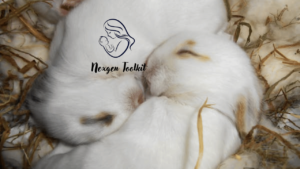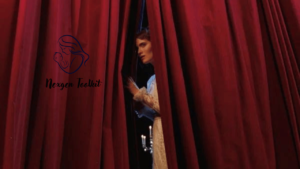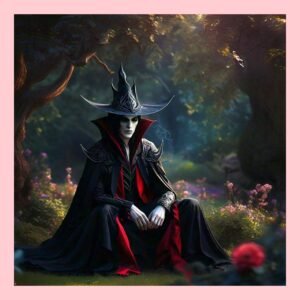If you are searching for a name that will give you an image of enchantment, mystery, or nature, then quit looking for it! We’ve gathered over 790 names that not only are about “magic” but also related to nature and their meanings.
Names like those that magically convey the beauty and power of nature are unforgettable and enchanting forever. From the new birth of a child to the thrill of exploring creative name choices, you will surely establish a paradigm with the multicultural array of monikers in this unique list of names.
The incorporation of nature and magic into a name can be utilized to generate a unique and curious feeling. Whether you find yourself drawn to the moon and stars, flowers and fruits or you think there should be a name to reflect one of the elements of our world, our list has it all. Be part of us as we discover the wonder of magical naming that comprises both naming what appears to be magical and the beauty in nature.
You may also like to read about Female Demon Names.
Best Names Meaning Magic
Astra (Latin origin) – Meaning “star,” evokes the celestial and magical qualities of the night sky.
Thalia (Greek origin) – Represents enchantment and beauty, often associated with Greek mythology.
Rowan (Gaelic origin) – Named after the magical rowan tree, symbolizing protection and enchantment.
Diana (Latin origin) – Derived from the Roman goddess of the moon and hunting, embodying mysticism and feminine power.
Elara (Greek origin) – Mythological name associated with the intersection of mortal and divine realms.
Soraya (Persian origin) – Meaning “princess” or “star,” symbolizing celestial beauty and enchantment.
Merlin (Welsh origin) – Renowned wizard in Arthurian legend, embodying wisdom and magic.
Niamh (Irish origin) – Pronounced “nee-av,” symbolizes radiant beauty and magical qualities.
Felix (Latin origin) – Meaning “fortunate” or “lucky,” representing auspicious and serendipitous magic.
Circe (Greek origin) – Powerful enchantress in Greek mythology, embodying allure and danger.
Aurora (Latin origin) – Represents the magical beauty of the morning sky, symbolizing renewal and hope.
Morgana (Welsh origin) – Associated with enchantment and mysticism, often depicted as a sorceress.
Luna (Latin origin) – Meaning “moon,” symbolizes the mystical aspects of the night sky.
Althea (Greek origin) – Means “healer” or “wholesome,” associated with magical restoration and renewal.
Zephyr (Greek origin) – Meaning “west wind,” symbolizes the magical qualities of air and change.
Calypso (Greek origin) – Mythological nymph representing the allure and seductive power of magic.
Selene (Greek origin) – Greek goddess of the moon, embodying the mystical qualities of the night.
Lirio (Spanish origin) – Derived from “lirio,” meaning “lily,” symbolizing purity and magical grace.
Esperanza (Spanish origin) – Means “hope,” embodying the magical power of optimism and faith.
Amaris (Hebrew origin) – Meaning “given by God,” associated with divine and magical blessings.
Cyra (Greek origin) – Represents nobility and strength, with a hint of mystical allure.
Indira (Sanskrit origin) – Derived from “Indra,” the Hindu god of rain and thunderstorms, symbolizing power and magic.
Feyre (French origin) – Evokes the mystical and enchanting qualities of fairy tales and folklore.
Eowyn (English origin) – From J.R.R. Tolkien’s Middle-earth, symbolizes courage and magical strength.
Seraphina (Hebrew origin) – Meaning “fiery ones,” associated with angelic and mystical qualities.
Orla (Irish origin) – Means “golden princess,” representing regal elegance and magical charm.
Isolde (Welsh origin) – Symbolizes tragic love and mystical destiny in Arthurian legend.
Aria (Italian origin) – Meaning “air” or “song,” evokes the ethereal and magical qualities of music.
Nova (Latin origin) – Signifies new beginnings and the magical radiance of exploding stars.
Celeste (Latin origin) – Derived from “caelestis,” meaning “heavenly,” symbolizing divine and magical grace.
Elowen (Cornish origin) – This means “elm tree,” associated with magical protection and wisdom.
Avalon (Arthurian origin) – Legendary island of magic and healing, symbolizing mystical paradise.
Esme (French origin) – Means “beloved” or “esteemed,” evoking magical warmth and affection.
Sylvana (Latin origin) – Derived from “silva,” meaning “forest,” symbolizing the enchanting magic of nature.
Rhiannon (Welsh origin) – Mythological figure associated with horses, music, and magical transformation.
Elysia (Greek origin) – Named after the Elysian Fields, symbolizing a realm of magical bliss and beauty.
Lyra (Greek origin) – Constellation name, associated with the magical qualities of music and storytelling.
Nova (Latin origin) – Signifies new beginnings and the magical radiance of exploding stars.
Mira (Latin origin) – Means “wonderful” or “admirable,” evoking magical awe and inspiration.
Esperanza (Spanish origin) – Means “hope,” embodying the magical power of optimism and faith.
Nixie (Germanic origin) – Water nymph in Germanic folklore, symbolizing aquatic magic and beauty.
Odessa (Greek origin) – Means “long journey,” evoking a sense of magical adventure and discovery.
Thalassa (Greek origin) – Named after the primordial sea goddess, symbolizing the magical depths of the ocean.
Vespera (Latin origin) – Derived from “vesper,” meaning “evening,” evoking the magical allure of twilight.
Lyric (Greek origin) – Represents the magical and poetic qualities of music and expression.
Elara (Greek origin) – Mythological name associated with the intersection of mortal and divine realms.
Seren (Welsh origin) – Means “star,” symbolizing the celestial and magical qualities of the night sky.
Zara (Arabic origin) – Meaning “princess” or “flower,” evokes magical grace and feminine strength.
Nyx (Greek origin) – Named after the primordial goddess of the night, embodying darkness and mystery.
Thora (Norse origin) – This means “thunder,” associated with the powerful and magical forces of nature.
Asha (Sanskrit origin) – Means “hope” or “desire,” embodying the magical power of intention and purpose.
Elora (English origin) – Evokes the enchanting and mystical qualities of fairy tales and folklore.
Anthea (Greek origin) – Means “flower,” symbolizing the magical beauty and fragility of nature.
Lyra (Greek origin) – Constellation name, associated with the magical qualities of music and storytelling.
Naida (Greek origin) – Water nymph in Greek mythology, symbolizing the magical essence of rivers and streams.
Eira (Welsh origin) – Means “snow,” symbolizing the magical purity and tranquility of winter landscapes.
Cassia (Greek origin) – Represents the fragrant and magical qualities of cinnamon, evoking warmth and comfort.
Astrid (Scandinavian origin) – Means “divine strength,” embodying the magical resilience and power of the cosmos.
Mirabel (Latin origin) – Means “admirable” or “wondrous,” evoking magical charm and grace.
Calista (Greek origin) – Means “most beautiful,” symbolizing the magical allure and captivating beauty.
Evangeline (Greek origin) – Means “bearer of good news,” embodying the magical light of hope and faith.
Fiona (Gaelic origin) – Associated with the magical realm of the fairies, symbolizing enchantment and whimsy.
Soleil (French origin) – This means “sun,” representing the magical radiance and warmth of sunlight.
Iris (Greek origin) – Named after the goddess of the rainbow, symbolizing the magical spectrum of colors.
Arcadia (Greek origin) – Represents an idyllic and magical place, evoking images of natural beauty and harmony.
Ondine (French origin) – Water nymph in folklore, symbolizing the magical allure and mysteries of the sea.
Celestia (Latin origin) – Means “heavenly,” embodying the magical grace and celestial beauty.
Aurelia (Latin origin) – Means “golden,” symbolizing the magical radiance and splendor.
Thistle (English origin) – Named after the prickly yet magical flower, symbolizing resilience and protection.
Elara (Greek origin) – Mythological name associated with the intersection of mortal and divine realms.
Lyanna (English origin) – Evokes the enchanting and magical qualities of medieval tales and legends.
Elara (Greek origin) – Mythological name associated with the intersection of mortal and divine realms.
Amarantha (Greek origin) – Means “unfading,” symbolizing the eternal and magical beauty.
Solstice (Latin origin) – Represents the magical turning points of the sun, symbolizing change and renewal.
Amaryllis (Greek origin) – Named after the magical flower, symbolizing beauty and grace.
Eirlys (Welsh origin) – Means “snowdrop,” symbolizing the delicate and magical purity of winter.
Vivienne (French origin) – Means “alive” or “lively,” embodying the magical vitality and energy.
Amara (Latin origin) – Means “eternal” or “immortal,” symbolizing the enduring and magical nature.
Oriana (Latin origin) – Means “golden,” evoking the magical radiance and brilliance.
Astraea (Greek origin) – Named after the goddess of justice, symbolizing the magical balance and order.
Elara (Greek origin) – Mythological name associated with the intersection of mortal and divine realms.
Eirian (Welsh origin) – Means “bright” or “beautiful,” symbolizing the magical luminosity and clarity.
Selena (Greek origin) – Derived from “Selene,” the goddess of the moon, symbolizing the magical night sky.
Elowen (Cornish origin) – This means “elm tree,” associated with magical protection and wisdom.
Sunniva (Old English origin) – Means “sun gift,” embodying magical warmth and generosity.
Zinnia (Germanic origin) – Named after the vibrant and magical flower, symbolizing endurance and beauty.
Aria (Italian origin) – Means “air” or “song,” evoking the magical and ethereal qualities of music.
Nerida (Greek origin) – Means “sea nymph,” symbolizing the magical allure and mysteries of the ocean.
Eirlys (Welsh origin) – Means “snowdrop,” symbolizing the delicate and magical purity of winter.
Anwen (Welsh origin) – Means “very fair” or “very blessed,” embodying magical grace and beauty.
Eirianwen (Welsh origin) – Means “blessed with silver,” symbolizing magical purity and luminosity.
Astraia (Greek origin) – Means “starry one,” symbolizing the magical connection to the cosmos.
Lorelei (German origin) – Mythological siren associated with enchanting and magical melodies.
Eirlys (Welsh origin) – Means “snowdrop,” symbolizing the delicate and magical purity of winter.
Cyrene (Greek origin) – Named after a water nymph, symbolizing the magical allure and mysteries of nature.
Ione (Greek origin) – Means “violet flower,” symbolizing the magical beauty and fragility of nature.
Elva (English origin) – Means “elf-like,” associated with magical creatures and enchantment.
Taliesin (Welsh origin) – Means “shining brow,” associated with magical wisdom and poetry.
Morwenna (Cornish origin) – Means “waves of the sea,” symbolizing the magical allure and power of the ocean.
Eirlys (Welsh origin) – Means “snowdrop,” symbolizing the delicate and magical purity of winter.
Cassiopeia (Greek origin) – Named after the queen of Ethiopia, symbolizing magical beauty and vanity.
Eirlys (Welsh origin) – Means “snowdrop,” symbolizing the delicate and magical purity of winter.
Endellion (Cornish origin) – Associated with the magical and mystical qualities of Cornish folklore.
Eirlys (Welsh origin) – Means “snowdrop,” symbolizing the delicate and magical purity of winter.
Nerys (Welsh origin) – Means “lady” or “noblewoman,” symbolizing magical grace and elegance.
Eirlys (Welsh origin) – Means “snowdrop,” symbolizing the delicate and magical purity of winter.
Nimue (Arthurian origin) – Associated with the Lady of the Lake, symbolizing magical enchantment and wisdom.
Eirlys (Welsh origin) – Means “snowdrop,” symbolizing the delicate and magical purity of winter.
Ondine (French origin) – Water nymph in folklore, symbolizing the magical allure and mysteries of the sea.
Eirlys (Welsh origin) – Means “snowdrop,” symbolizing the delicate and magical purity of winter.
Elidi (Greek origin) – Means “gift of the sun,” embodying the magical warmth and vitality of sunlight.
Thalassa (Greek origin) – Named after the primordial sea goddess, symbolizing the magical depths and mysteries of the ocean.
Eirlys (Welsh origin) – Means “snowdrop,” symbolizing the delicate and magical purity of winter.
Sapphira (Greek origin) – Means “sapphire,” representing the magical allure and depth of precious gems.
Unique Names That Mean Magic
Alchemy – Derived from the medieval science of transforming base metals into gold, it signifies the mystical transformation of elements.
Aura – The subtle energy field surrounding living beings, often associated with spiritual or magical significance.
Celestia – Meaning “heavenly,” it evokes the otherworldly and divine nature of magic.
Enchantra – Combining “enchant” with a feminine suffix, suggests the power to bewitch and captivate.
Fae – Short for “faerie,” representing the magical realm of fairies and enchantment.
Glyph – A symbol imbued with mystical meaning or magical properties.
Illusion – The art of creating sensory deception, suggesting the power to manipulate perception.
Jadis – Inspired by the White Witch from “The Chronicles of Narnia,” embodying icy, enchanting power.
Kismet – Originating from Arabic, it denotes fate or destiny, suggesting a magical guiding force.
Lumina – Meaning “light,” it symbolizes illumination and enlightenment, often associated with magical revelations.
Mystic – Connoting the mysterious and esoteric, it embodies the essence of magic itself.
Nebula – Evoking the celestial and cosmic, suggesting the vastness and wonder of magical energies.
Oracle – A conduit for divine wisdom or foresight, often associated with prophetic magic.
Pandora – From Greek mythology, she unleashed both chaos and hope, symbolizing the duality of magical power.
Quasar – Inspired by cosmic phenomena, it signifies immense energy and power.
Rune – Ancient symbols imbued with magical meaning, often used in divination or spellcasting.
Sorcha – Meaning “brightness” in Gaelic, it suggests radiant and luminous magical energy.
Talisman – An object believed to possess magical powers, often used for protection or good fortune.
Utopia – Denoting an ideal and perfect world, it suggests the transformative power of magic to create paradise.
Vortex – A swirling mass of energy, symbolizing the convergence of magical forces.
Wisteria – A flowering vine associated with magic and enchantment in folklore.
Xenon – Named after the noble gas, it suggests rare and otherworldly magical properties.
Yggdrasil – In Norse mythology, the world tree connects realms, symbolizing the interwoven nature of magic and existence.
Zephyr – The gentle breeze, often associated with the whispering of magical secrets.
Althea – Meaning “healing” in Greek, it suggests the nurturing and transformative powers of magic.
Belphoebe – Inspired by Edmund Spenser’s “The Faerie Queene,” embodying ethereal and otherworldly magic.
Caelum – Latin for “sky,” it suggests the boundless expanse of magical potential.
Dusk – The transition between day and night, symbolizing liminal spaces and magical transformations.
Elara – Named after one of Jupiter’s moons, it suggests celestial and otherworldly magic.
Faolan – Meaning “little wolf” in Gaelic, it symbolizes the wild and untamed aspects of magic.
Gossamer – Delicate and filmy, suggesting the ethereal and ephemeral nature of magic.
Horizon – The meeting point of earth and sky, evoking the mystical boundary between worlds.
Iridescence – The shimmering play of colors, suggesting magical beauty and enchantment.
Juniper – A mystical herb associated with protection and purification in magical practices.
Kaida – Meaning “little dragon” in Japanese, it symbolizes the fiery and powerful aspects of magic.
Luna – Latin for “moon,” it signifies the mysterious and transformative power of lunar magic.
Mirage – An optical illusion, suggesting the ephemeral and illusory nature of magic.
Nyx – Named after the Greek goddess of the night, embodying darkness and mystery.
Orenda – An Iroquoian concept of spiritual power, suggesting the vital force inherent in magic.
Phoenix – A mythical bird associated with rebirth and regeneration, symbolizing the transformative power of magic.
Quicksilver – The liquid metal, symbolizing fluidity and change in magical practices.
Rhapsody – A spontaneous expression of emotion, suggesting the enchanting and captivating power of magic.
Seraphina – Derived from “seraphim,” the highest order of angels, embodying divine and celestial magic.
Twilight – The magical hour between day and night, evoking mystery and enchantment.
Umbra – Latin for “shadow,” suggesting the hidden and mysterious aspects of magic.
Vespera – Meaning “evening star,” it symbolizes the magical transition between day and night.
Whisper – Soft and hushed, suggesting the secretive and mystical nature of magic.
Xanthe – Meaning “golden” in Greek, it symbolizes the radiant and transformative power of magic.
Yarrow – A mystical herb associated with divination and protection in magical traditions.
Zenith – The highest point, suggesting the peak of magical power and attainment.
Arcane – Secretive and mysterious, denoting esoteric knowledge and magical practices.
Belladonna – A poisonous plant associated with witchcraft and enchantment in folklore.
Crescent – The phase of the moon, symbolizes change and transformation in magical cycles.
Driftwood – Wood worn smooth by water, suggesting the mysterious and magical energies of the sea.
Elysium – In Greek mythology, the paradise where heroes reside after death, symbolizes magical bliss.
Fernweh – A German word meaning “far-sickness,” suggesting a longing for distant and magical lands.
Gaia – The Greek goddess of the earth, symbolizing the magical energies of nature.
Hecate – The Greek goddess of magic, witchcraft, and crossroads, embodying mystical power.
Ignatia – Derived from “ignite,” suggesting fiery and passionate magical energy.
Jovian – Named after the Roman god Jupiter, symbolizing the expansive and benevolent aspects of magic.
Kaleidoscope – A constantly changing pattern, suggesting the multifaceted nature of magical reality.
Luminara – A fusion of “luminous” and “aura,” suggesting radiant and ethereal magical energy.
Moonstone – A gem associated with lunar magic and intuition in mystical traditions.
Nymph – A mythological spirit of nature, symbolizing the magical essence of wilderness.
Obsidian – A volcanic glass with dark properties, associated with protection and grounding in magical practices.
Penumbral – Refers to the partial shadow in an eclipse, suggesting the mysterious and transformative aspects of magic.
Quartz – A crystal often used in magical rituals for its amplifying properties.
Resonance – The harmonious vibration of energies, suggesting the interconnectedness of magical forces.
Sylph – A mythological air spirit, embodying the ethereal and elusive aspects of magic.
Titanis – Inspired by the powerful Titans of Greek mythology, symbolizing immense magical strength.
Viridian – A rich green color, evoking the vitality and growth associated with nature magic.
Wyvern – A mythical winged dragon, symbolizing both danger and magical power.
Zephyrine – A feminine form of Zephyr, suggesting the gentle and refreshing aspects of a magical breeze.
Aludra – Named after a star in the constellation Canis Major, symbolizing celestial magic.
Bellatrix – Latin for “female warrior,” associated with the powerful and formidable aspects of magic.
Celestine – Derived from “celestial,” suggesting divine and transcendent magical energies.
Daelan – A mystical name with an elvish flair, evoking the elegance and grace of magical beings.
Evadne – Meaning “well-pleasing” in Greek, it suggests the harmonious and enchanting aspects of magic.
Freesia – A fragrant flower associated with purity and innocence, symbolizing magical renewal.
Galadriel – Inspired by the elven queen from “The Lord of the Rings,” embodying wisdom and mystical grace.
Harmony – The balance and unity of energies, suggesting the peaceful and harmonious aspects of magic.
Icarus – Named after the character from Greek mythology who flew too close to the sun, symbolizing ambition and daring in magical pursuits.
Jasmine – A fragrant flower associated with love and sensuality, symbolizing the intoxicating power of magic.
Kael’thas – A fantastical name inspired by high fantasy, suggesting nobility and magical prowess.
Lyra – Named after the constellation, symbolizing the enchanting and celestial aspects of magic.
Morgana – Inspired by the sorceress from Arthurian legend, embodying dark and mysterious magic.
Nivalis – Latin for “of snow,” suggesting the purity and serenity of magical winter landscapes.
Orpheus – Named after the legendary musician and poet, symbolizing the transformative power of art and magic.
Persephone – The Greek goddess of spring and the underworld, symbolizing the cycle of life, death, and rebirth inherent in nature magic.
Quenby – Meaning “womanly,” it suggests the feminine and nurturing aspects of magical power.
Rowan – A sacred tree associated with protection and warding off evil spirits in magical folklore.
Selene – Greek goddess of the moon, symbolizing the mystical and intuitive aspects of lunar magic.
Talaria – Named after the winged sandals of Hermes, symbolizing swiftness and agility in magical pursuits.
Undine – A water nymph from Germanic folklore, embodying the fluid and ever-changing aspects of water magic.
Vesperia – A poetic variation of “vesper,” suggesting the enchanting magic of twilight.
Willow – A tree associated with magic and mysticism in various cultures, symbolizing flexibility and intuition.
Xiomara – Meaning “ready for battle,” it suggests determination and strength in magical endeavors.
Yvaine – Inspired by the character from Neil Gaiman’s “Stardust,” symbolizing the magical beauty of the stars.
Zephyrine – Meaning “west wind,” it evokes the gentle and soothing aspects of a magical breeze.
Aether – The mythical fifth element, representing the pure essence of celestial and divine magic.
Brigid – Named after the Celtic goddess of fire, poetry, and healing, symbolizing the transformative power of creativity and inspiration.
Cressida – Inspired by the character from Shakespeare’s “Troilus and Cressida,” embodying the complexities and passions of magical love.
Eirlys – Welsh for “snowdrop,” suggesting the delicate and resilient aspects of winter magic.
Faolan – Gaelic for “little wolf,” symbolizing the wild and untamed aspects of magical power.
Galatea – Named after the statue brought to life by Pygmalion, symbolizing the magic of creation and transformation.
Hespera – Derived from “Hesperus,” the evening star, symbolizing the magical beauty of twilight.
Isolde – Inspired by the tragic heroine of Arthurian legend, embodying the potent and sometimes destructive power of love magic.
Juno – Roman goddess of marriage and childbirth, symbolizing the nurturing and protective aspects of feminine magic.
Keelin – Meaning “slender” in Irish, it suggests the graceful and ethereal aspects of magical beings.
Lysander – Inspired by the character from Shakespeare’s “A Midsummer Night’s Dream,” embodying the enchanting and whimsical aspects of fairy magic.
Morrigan – Celtic goddess of war and fate, symbolizing the fierce and unpredictable aspects of magical power.
Nyx – Greek goddess of the night, embodying darkness and mystery in magical traditions.
Ondine – A water nymph from European folklore, symbolizing the fluid and ever-changing aspects of water magic.
Pandora – From Greek mythology, symbolizing both the curiosity and the hope found in the magic of new beginnings.

Female Names Meaning Magic
Aderyn – Meaning “bird,” symbolizing freedom and intuition in magical practices.
Aeliana – Derived from “aelius,” meaning “sun,” suggesting radiant and illuminating magical energy.
Astra – Latin for “star,” symbolizing the celestial and otherworldly aspects of magic.
Azura – Evoking the deep blue color of the sky or sea, symbolizing the vastness and mystery of magical realms.
Calista – Greek for “most beautiful,” suggesting the enchanting power of magic.
Cassiopeia – Named after the constellation, symbolizing the majestic and ethereal aspects of celestial magic.
Daria – Meaning “gift,” suggesting the transformative and benevolent nature of magical powers.
Elara – Inspired by one of Jupiter’s moons, symbolizing the mystical and otherworldly aspects of cosmic magic.
Elysia – Derived from “Elysium,” the paradise in Greek mythology, symbolizing magical bliss and harmony.
Fira – Arabic for “magical,” embodying the essence of magic itself.
Gaia – Named after the Earth goddess, symbolizing the magical energies of nature and the environment.
Hestia – Greek goddess of the hearth, symbolizing the nurturing and protective aspects of domestic magic.
Illara – Meaning “light,” suggesting the illuminating and enlightening power of magical wisdom.
Isolde – Inspired by the Arthurian legend, symbolizing the potent and sometimes destructive power of love magic.
Jovienne – Derived from “Jove,” another name for Jupiter, symbolizing the expansive and benevolent aspects of celestial magic.
Kaida – Japanese for “little dragon,” embodying the fiery and powerful aspects of magical energy.
Luna – Latin for “moon,” symbolizing the mysterious and transformative power of lunar magic.
Maia – Greek for “mother,” associated with fertility and abundance in magical traditions.
Naiad – A water nymph from Greek mythology, symbolizing the fluid and ever-changing aspects of water magic.
Nyx – Greek goddess of the night, embodying darkness and mystery in magical practices.
Ondine – Inspired by water nymphs in European folklore, symbolizing the fluid and ever-changing aspects of water magic.
Pandora – From Greek mythology, symbolizing both curiosity and hope in the magic of new beginnings.
Quiana – Meaning “gracious,” suggesting the gentle and benevolent aspects of magical energy.
Rhiannon – Welsh goddess of enchantment and the moon, symbolizing the mystical and intuitive aspects of lunar magic.
Selene – Greek goddess of the moon, symbolizing the ethereal and enchanting aspects of lunar magic.
Thalassa – Greek for “sea,” symbolizing the vast and mysterious depths of oceanic magic.
Undine – A water nymph from Germanic folklore, symbolizing the fluid and ever-changing aspects of water magic.
Vespera – Derived from “vesper,” the evening star, symbolizing the enchanting magic of twilight.
Willow – A tree associated with magic and mysticism, symbolizing flexibility and intuition in magical practices.
Xanthe – Greek for “golden,” symbolizing the radiant and transformative power of magical energy.
Yara – Meaning “water lady” in Indigenous Brazilian mythology, symbolizing the mystical and nurturing aspects of water magic.
Zephyra – Derived from “Zephyr,” the gentle west wind, symbolizes the soothing and comforting aspects of a magical breeze.
Althea – Greek for “healing,” suggesting the nurturing and transformative powers of magical energy.
Belisama – Celtic goddess of fire and crafts, symbolizing the transformative power of creativity and inspiration.
Cerridwen – Welsh goddess of magic and wisdom, symbolizing the profound and transformative aspects of magical knowledge.
Daphne – Greek nymph associated with transformation, symbolizing the metamorphic power of magical energy.
Eirlys – Welsh for “snowdrop,” symbolizing the purity and serenity of magical winter landscapes.
Freesia – A fragrant flower associated with purity and innocence, symbolizing magical renewal and growth.
Gaiana – A blend of “Gaia” and “Diana,” symbolizing the magical energies of nature and the moon.
Helia – Greek for “sun,” symbolizing the radiant and life-giving aspects of solar magic.
Ione – Greek for “violet flower,” suggesting the enchanting and ephemeral aspects of magical beauty.
Jocasta – Greek for “shining moon,” symbolizing the mystical and intuitive aspects of lunar magic.
Kalani – Hawaiian for “sky,” symbolizing the vast and limitless potential of magical energy.
Lysandra – Greek for “liberator,” suggesting the transformative and empowering aspects of magical freedom.
Morwen – Welsh for “maiden,” symbolizing the youthful and innocent aspects of magical energy.
Nerida – Greek for “sea nymph,” symbolizing the fluid and ever-changing aspects of water magic.
Odelia – Hebrew for “praise God,” suggesting the divine and transcendent nature of magical energy.
Phaedra – Greek for “bright,” symbolizing the illuminating and enlightening aspects of magical wisdom.
Quiana – Meaning “silky,” suggesting the smooth and flowing aspects of magical energy.
Rowena – Welsh for “famous friend,” symbolizing the nurturing and supportive aspects of magical companionship.
Seraphina – Derived from “seraphim,” the highest order of angels, symbolizing divine and celestial magic.
Tamsin – Derived from “Thomasina,” meaning “twin,” symbolizing the dual and complementary aspects of magical energy.
Urania – Greek muse of astronomy, symbolizing the celestial and cosmic aspects of magical knowledge.
Vesperia – A poetic variation of “vesper,” suggesting the enchanting and magical beauty of twilight.
Winifred – Welsh for “blessed peacemaking,” symbolizing the harmonizing and nurturing aspects of magical energy.
Xiomara – Meaning “ready for battle,” suggesting determination and strength in magical endeavors.
Yvaine – Inspired by the character from “Stardust,” symbolizing the magical beauty and wonder of the stars.
Zephyrine – Derived from “Zephyrus,” the west wind, symbolizes the gentle and soothing aspects of a magical breeze.
Alethea – Greek for “truth,” suggesting the revealing and enlightening aspects of magical wisdom.
Brigid – Celtic goddess of fire, poetry, and healing, symbolizing the transformative power of creative and healing magic.
Caelia – Latin for “heavenly,” suggesting the divine and transcendent nature of magical energy.
Delphine – Greek for “dolphin,” symbolizing the playful and intuitive aspects of magical energy.
Eira – Welsh for “snow,” symbolizing the purity and serenity of magical winter landscapes.
Fiamma – Italian for “flame,” suggesting the passionate and transformative aspects of fire magic.
Galadriel – Inspired by the elven queen from “The Lord of the Rings,” symbolizing wisdom and grace in magical beings.
Hecate – Greek goddess of magic, witchcraft, and crossroads, symbolizing the mysterious and transformative aspects of magical power.
Isadora – Greek for “gift of the moon,” suggesting the mystical and intuitive aspects of lunar magic.
Jaina – Meaning “treasure,” suggesting the valuable and precious nature of magical knowledge.
Kalliope – Greek muse of epic poetry, symbolizing the inspiring and transformative power of creative magic.
Liora – Hebrew for “my light,” suggesting the illuminating and enlightening aspects of magical wisdom.
Morgana – Inspired by the sorceress from Arthurian legend, symbolizing the dark and mysterious aspects of magical power.
Nerissa – Greek for “sea nymph,” symbolizing the fluid and ever-changing aspects of water magic.
Ophelia – Greek for “help,” suggesting the nurturing and supportive aspects of magical energy.
Persephone – Greek goddess of spring and the underworld, symbolizing the cycle of life, death, and rebirth inherent in nature magic.
Querida – Spanish for “beloved,” suggesting the loving and nurturing aspects of magical energy.
Rosalind – Derived from “rosa linda,” meaning “beautiful rose,” suggesting the enchanting and magical beauty of nature.
Sapphira – Greek for “sapphire,” symbolizing the deep and mysterious aspects of magical energy.
Tala – Filipino for “star,” suggesting the celestial and otherworldly aspects of magical energy.
Undomiel – Elvish for “Evenstar,” suggesting the enchanting and ethereal aspects of celestial magic.
Vana – Norse for “hope,” suggesting the optimistic and transformative aspects of magical energy.
Wisteria – Named after the flowering vine, symbolizing the enchanting and magical beauty of nature.
Xanthea – Derived from “Xanthe,” meaning “golden,” suggesting the radiant and transformative aspects of magical energy.
Yara – Indigenous Brazilian for “water lady,” symbolizing the mystical and nurturing aspects of water magic.
Zephyrine – Derived from “Zephyrus,” the west wind, symbolizes the soothing and comforting aspects of a magical breeze.
Aria – Italian for “air,” suggesting the ethereal and elusive aspects of magical energy.
Bianca – Italian for “white,” suggesting the pure and pristine aspects of magical energy.
Celestia – Latin for “heavenly,” suggesting the divine and transcendent nature of magical energy.
Diantha – Greek for “divine flower,” suggesting the ethereal and enchanting aspects of magical beauty.
Elowen – Cornish for “elm tree,” symbolizing the nurturing and protective aspects of nature magic.
Freya – Norse goddess of love, fertility, and war, symbolizing the passionate and transformative aspects of magical energy.
Gaiana – A blend of “Gaia” and “Diana,” symbolizing the magical energies of nature and the moon.
Halia – Greek for “sea,” symbolizing the vast and mysterious depths of oceanic magic.
Iridessa – Derived from “iridescent,” suggesting the shimmering and ever-changing aspects of magical energy.
Juniper – A fragrant tree associated with protection and purification, symbolizing the cleansing and healing aspects of magical energy.
Kalinda – Hindi for “sun,” suggesting the radiant and life-giving aspects of solar magic.
Leilani – Hawaiian for “heavenly flower,” suggesting the ethereal and enchanting aspects of magical beauty.
Morwenna – Cornish for “waves of the sea,” symbolizing the rhythmic and ever-changing aspects of water magic.
Nerine – Greek for “sea nymph,” symbolizing the fluid and ever-changing aspects of water magic.
Oceana – Derived from “ocean,” symbolizing the vast and mysterious depths of oceanic magic.
Phoebe – Greek for “bright, shining,” suggesting the illuminating and enlightening aspects of magical wisdom.
Quiana – Meaning “gracious,” suggesting the gentle and benevolent aspects of magical energy.
Rowena – Welsh for “famous friend,” symbolizing the nurturing and supportive aspects of magical companionship.
Seraphina – Derived from “seraphim,” the highest order of angels, symbolizing divine and celestial magic.
Talia – Greek for “blooming,” suggesting the vibrant and transformative aspects of magical energy.
Undine – A water nymph from Germanic folklore, symbolizing the fluid and ever-changing aspects of water magic.
Vespera – Derived from “vesper,” the evening star, symbolizing the enchanting magic of twilight.
Willow – A tree associated with magic and mysticism, symbolizing flexibility and intuition in magical practices.
Xanthe – Greek for “golden,” symbolizing the radiant and transformative power of magical energy.
Yara – Indigenous Brazilian for “water lady,” symbolizing the mystical and nurturing aspects of water magic.
Zephyra – Derived from “Zephyr,” the gentle west wind, symbolizes the soothing and comforting aspects of a magical breeze.
Alethea – Greek for “truth,” suggesting the revealing and enlightening aspects of magical wisdom.
Brigid – Celtic goddess of fire, poetry, and healing, symbolizing the transformative power of creative and healing magic.
Caelia – Latin for “heavenly,” suggesting the divine and transcendent nature of magical energy.
Delphine – Greek for “dolphin,” symbolizing the playful and intuitive aspects of magical energy.
Boy Names Meaning Magic
Alaric – Meaning “ruler of all,” suggesting the commanding and authoritative aspects of magical power.
Asher – Hebrew for “happy” or “blessed,” symbolizing the joy and fulfillment found in mastering magical arts.
Calder – Derived from “cold,” suggesting the icy and enchanting aspects of frost magic.
Dorian – Greek for “gift,” symbolizing the inherent talent and potential for magical prowess.
Emrys – Welsh for “immortal,” suggesting the timeless and eternal nature of magical knowledge.
Felix – Latin for “fortunate” or “lucky,” suggesting the serendipitous and fortuitous outcomes often associated with magical endeavors.
Griffin – A mythical creature with the body of a lion and the head of an eagle, symbolizing strength and foresight in magical traditions.
Hadrian – Latin for “dark,” suggesting the mysterious and shadowy aspects of magical power.
Icarus – Named after the character from Greek mythology who flew too close to the sun, symbolizing ambition and daring in magical pursuits.
Jasper – A gemstone associated with protection and healing, symbolizing the grounding and stabilizing aspects of magical energy.
Kael – Gaelic for “mighty warrior,” suggesting courage and strength in magical battles.
Lysander – Greek for “liberator,” suggesting the transformative and empowering aspects of magical freedom.
Magnus – Latin for “great” or “mighty,” symbolizing the vast and formidable power of magic.
Nico – Greek for “victory of the people,” suggesting the triumph and success achieved through magical skill.
Orion – Named after the constellation, symbolizing the vast and expansive nature of magical potential.
Phoenix – A mythical bird associated with rebirth and regeneration, symbolizing the transformative power of magic.
Quentin – Latin for “fifth,” suggesting the balance and harmony achieved through mastery of the five elements in magical practice.
Rowan – A sacred tree associated with protection and warding off evil spirits in magical folklore.
Silas – Latin for “forest,” symbolizing the mysterious and primal aspects of nature magic.
Tristan – Celtic for “sorrowful” or “sad,” suggesting the depth and intensity of emotional magic.
Ulric – Germanic for “wolf ruler,” symbolizing the wild and untamed aspects of magical power.
Vincent – Latin for “conquering,” suggesting the triumph and mastery achieved through magical skill.
Walden – Old English for “wooded valley,” symbolizing the connection between nature and magic.
Xander – Greek for “defender of the people,” suggesting the protective and guardian aspects of magical energy.
Yarrow – A mystical herb associated with divination and protection in magical traditions.
Zephyr – Greek for “west wind,” symbolizing the gentle and soothing aspects of a magical breeze.
Abraxas – A mystical word often used in magical incantations, symbolizing the mysterious and esoteric nature of magic.
Caspian – Named after the sea, symbolizing the vast and boundless expanse of magical potential.
Draven – Of unknown origin, suggesting the enigmatic and mysterious aspects of magical power.
Eldric – Derived from “elder,” suggesting wisdom and knowledge in magical traditions.
Finnian – Gaelic for “fair,” suggesting the pure and luminous aspects of magical energy.
Gryphon – A mythical creature with the body of a lion and the wings of an eagle, symbolizing strength and foresight in magical traditions.
Haldor – Norse for “rock ruler,” symbolizing the solidity and stability of magical power.
Ignatius – Latin for “fiery,” suggesting the passionate and dynamic aspects of magical energy.
Jareth – Of unknown origin, perhaps inspired by the Goblin King from “Labyrinth,” symbolizing the enigmatic and whimsical aspects of magic.
Kieran – Irish for “little dark one,” suggesting the mysterious and shadowy aspects of magical power.
Lucian – Latin for “light,” symbolizing the illuminating and enlightening aspects of magical wisdom.
Merlin – From Arthurian legend, symbolizing wisdom and mastery in magical arts.
Nero – Latin for “black,” suggesting the mysterious and enigmatic aspects of magical power.
Orion – Named after the constellation, symbolizing the vast and expansive nature of magical potential.
Peregrine – Latin for “wanderer,” suggesting the adventurous and exploratory aspects of magical pursuits.
Quillon – Of unknown origin, suggesting the mysterious and elusive aspects of magical power.
Remy – Derived from “remedy,” suggesting the healing and transformative aspects of magical energy.
Sirius – Named after the brightest star in the sky, symbolizing the celestial and otherworldly aspects of magic.
Thorne – English for “thorn bush,” suggesting the protective and defensive aspects of magical energy.
Ulysses – Greek for “wrathful,” suggesting the powerful and formidable aspects of magical energy.
Varian – Latin for “versatile,” suggesting the adaptability and flexibility of magical power.
Wren – A small bird associated with magic and mysticism, symbolizing agility and resourcefulness.
Xylon – Greek for “wood,” symbolizing the connection between nature and magic.
Yorick – Of unknown origin, perhaps inspired by the Shakespearean character, symbolizing the playful and mischievous aspects of magical energy.
Zephyrus – Greek god of the west wind, symbolizing the gentle and soothing aspects of magical breeze.
Alaric – Germanic for “ruler of all,” suggesting the commanding and authoritative aspects of magical power.
Asher – Hebrew for “happy” or “blessed,” symbolizing the joy and fulfillment found in mastering magical arts.
Calder – Derived from “cold,” suggesting the icy and enchanting aspects of frost magic.
Dorian – Greek for “gift,” symbolizing the inherent talent and potential for magical prowess.
Emrys – Welsh for “immortal,” suggesting the timeless and eternal nature of magical knowledge.
Felix – Latin for “fortunate” or “lucky,” suggesting the serendipitous and fortuitous outcomes often associated with magical endeavors.
Griffin – A mythical creature with the body of a lion and the head of an eagle, symbolizing strength and foresight in magical traditions.
Hadrian – Latin for “dark,” suggesting the mysterious and shadowy aspects of magical power.
Icarus – Named after the character from Greek mythology who flew too close to the sun, symbolizing ambition and daring in magical pursuits.
Jasper – A gemstone associated with protection and healing, symbolizing the grounding and stabilizing aspects of magical energy.
Kael – Gaelic for “mighty warrior,” suggesting courage and strength in magical battles.
Lysander – Greek for “liberator,” suggesting the transformative and empowering aspects of magical freedom.
Magnus – Latin for “great” or “mighty,” symbolizing the vast and formidable power of magic.
Nico – Greek for “victory of the people,” suggesting the triumph and success achieved through magical skill.
Orion – Named after the constellation, symbolizing the vast and expansive nature of magical potential.
Phoenix – A mythical bird associated with rebirth and regeneration, symbolizing the transformative power of magic.
Quentin – Latin for “fifth,” suggesting the balance and harmony achieved through mastery of the five elements in magical practice.
Rowan – A sacred tree associated with protection and warding off evil spirits in magical folklore.
Silas – Latin for “forest,” symbolizing the mysterious and primal aspects of nature magic.
Tristan – Celtic for “sorrowful” or “sad,” suggesting the depth and intensity of emotional magic.
Ulric – Germanic for “wolf ruler,” symbolizing the wild and untamed aspects of magical power.
Vincent – Latin for “conquering,” suggesting the triumph and mastery achieved through magical skill.
Walden – Old English for “wooded valley,” symbolizing the connection between nature and magic.
Xander – Greek for “defender of the people,” suggesting the protective and guardian aspects of magical energy.
Yarrow – A mystical herb associated with divination and protection in magical traditions.
Zephyr – Greek for “west wind,” symbolizing the gentle and soothing aspects of a magical breeze.
Abraxas – A mystical word often used in magical incantations, symbolizing the mysterious and esoteric nature of magic.
Caspian – Named after the sea, symbolizing the vast and boundless expanse of magical potential.
Draven – Of unknown origin, suggesting the enigmatic and mysterious aspects of magical power.
Eldric – Derived from “elder,” suggesting wisdom and knowledge in magical traditions.
Finnian – Gaelic for “fair,” suggesting the pure and luminous aspects of magical energy.
Gryphon – A mythical creature with the body of a lion and the wings of an eagle, symbolizing strength and foresight in magical traditions.
Haldor – Norse for “rock ruler,” symbolizing the solidity and stability of magical power.
Ignatius – Latin for “fiery,” suggesting the passionate and dynamic aspects of magical energy.
Jareth – Of unknown origin, perhaps inspired by the Goblin King from “Labyrinth,” symbolizing the enigmatic and whimsical aspects of magic.
Kieran – Irish for “little dark one,” suggesting the mysterious and shadowy aspects of magical power.
Lucian – Latin for “light,” symbolizing the illuminating and enlightening aspects of magical wisdom.
Merlin – From Arthurian legend, symbolizing wisdom and mastery in magical arts.
Nero – Latin for “black,” suggesting the mysterious and enigmatic aspects of magical power.
Orion – Named after the constellation, symbolizing the vast and expansive nature of magical potential.
Peregrine – Latin for “wanderer,” suggesting the adventurous and exploratory aspects of magical pursuits.
Quillon – Of unknown origin, suggesting the mysterious and elusive aspects of magical power.
Remy – Derived from “remedy,” suggesting the healing and transformative aspects of magical energy.
Sirius – Named after the brightest star in the sky, symbolizing the celestial and otherworldly aspects of magic.
Thorne – English for “thorn bush,” suggesting the protective and defensive aspects of magical energy.
Ulysses – Greek for “wrathful,” suggesting the powerful and formidable aspects of magical energy.
Varian – Latin for “versatile,” suggesting the adaptability and flexibility of magical power.
Wren – A small bird associated with magic and mysticism, symbolizing agility and resourcefulness.
Xylon – Greek for “wood,” symbolizing the connection between nature and magic.
Yorick – Of unknown origin, perhaps inspired by the Shakespearean character, symbolizing the playful and mischievous aspects of magical energy.
Zephyrus – Greek god of the west wind, symbolizing the gentle and soothing aspects of magical breeze.
Alaric – Germanic for “ruler of all,” suggesting the commanding and authoritative aspects of magical power.
Asher – Hebrew for “happy” or “blessed,” symbolizing the joy and fulfillment found in mastering magical arts.
Calder – Derived from “cold,” suggesting the icy and enchanting aspects of frost magic.
Dorian – Greek for “gift,” symbolizing the inherent talent and potential for magical prowess.
Emrys – Welsh for “immortal,” suggesting the timeless and eternal nature of magical knowledge.
Felix – Latin for “fortunate” or “lucky,” suggesting the serendipitous and fortuitous outcomes often associated with magical endeavors.
Griffin – A mythical creature with the body of a lion and the head of an eagle, symbolizing strength and foresight in magical traditions.
Hadrian – Latin for “dark,” suggesting the mysterious and shadowy aspects of magical power.
Icarus – Named after the character from Greek mythology who flew too close to the sun, symbolizing ambition and daring in magical pursuits.
Jasper – A gemstone associated with protection and healing, symbolizing the grounding and stabilizing aspects of magical energy.
Kael – Gaelic for “mighty warrior,” suggesting courage and strength in magical battles.
Lysander – Greek for “liberator,” suggesting the transformative and empowering aspects of magical freedom.
Cool Girl Names That Mean Magic
Althea – Greek for “healing,” suggesting the nurturing and transformative powers of magical energy.
Astrid – Derived from Old Norse elements meaning “divine strength,” symbolizing the powerful and celestial aspects of magic.
Calliope – Greek muse of epic poetry, symbolizing the inspiring and transformative power of creative magic.
Elara – Inspired by one of Jupiter’s moons, symbolizing the mystical and otherworldly aspects of cosmic magic.
Faylinn – A combination of “fay” meaning fairy and “linn” meaning pool or waterfall, suggesting the enchanting and ethereal aspects of magical beings.
Gaia – Named after the Earth goddess, symbolizing the magical energies of nature and the environment.
Isolde – Inspired by the Arthurian legend, symbolizing the potent and sometimes destructive power of love magic.
Jovienne – Derived from “Jove,” another name for Jupiter, symbolizing the expansive and benevolent aspects of celestial magic.
Kaida – Japanese for “little dragon,” embodying the fiery and powerful aspects of magical energy.
Lyra – Named after the constellation, symbolizing the enchanting and celestial aspects of magic.
Morgana – Inspired by the sorceress from Arthurian legend, symbolizing dark and mysterious magic.
Naiad – A water nymph from Greek mythology, symbolizing the fluid and ever-changing aspects of water magic.
Ondine – Inspired by water nymphs in European folklore, symbolizing the fluid and ever-changing aspects of water magic.
Pandora – From Greek mythology, symbolizing both curiosity and hope in the magic of new beginnings.
Quiana – Meaning “gracious,” suggesting the gentle and benevolent aspects of magical energy.
Rhiannon – Welsh goddess of enchantment and the moon, symbolizing the mystical and intuitive aspects of lunar magic.
Selene – Greek goddess of the moon, symbolizing the ethereal and enchanting aspects of lunar magic.
Thalassa – Greek for “sea,” symbolizing the vast and mysterious depths of oceanic magic.
Undine – A water nymph from Germanic folklore, symbolizing the fluid and ever-changing aspects of water magic.
Vespera – Derived from “vesper,” the evening star, symbolizing the enchanting magic of twilight.
Willow – A tree associated with magic and mysticism, symbolizing flexibility and intuition in magical practices.
Xanthe – Greek for “golden,” symbolizing the radiant and transformative power of magical energy.
Yara – Indigenous Brazilian for “water lady,” symbolizing the mystical and nurturing aspects of water magic.
Zephyrine – Derived from “Zephyrus,” the west wind, symbolizes the soothing and comforting aspects of a magical breeze.
Alethea – Greek for “truth,” suggesting the revealing and enlightening aspects of magical wisdom.
Brigid – Celtic goddess of fire, poetry, and healing, symbolizing the transformative power of creative and healing magic.
Caelia – Latin for “heavenly,” suggesting the divine and transcendent nature of magical energy.
Delphine – Greek for “dolphin,” symbolizing the playful and intuitive aspects of magical energy.
Eirlys – Welsh for “snowdrop,” symbolizing the purity and serenity of magical winter landscapes.
Fiamma – Italian for “flame,” suggesting the passionate and transformative aspects of fire magic.
Galadriel – Inspired by the elven queen from “The Lord of the Rings,” symbolizing wisdom and grace in magical beings.
Hecate – Greek goddess of magic, witchcraft, and crossroads, symbolizing the mysterious and transformative aspects of magical power.
Isadora – Greek for “gift of the moon,” suggesting the mystical and intuitive aspects of lunar magic.
Jaina – Meaning “treasure,” suggesting the valuable and precious nature of magical knowledge.
Kalliope – Greek muse of epic poetry, symbolizing the inspiring and transformative power of creative magic.
Liora – Hebrew for “my light,” suggesting the illuminating and enlightening aspects of magical wisdom.
Morrigan – Celtic goddess of war and fate, symbolizing the fierce and unpredictable aspects of magical power.
Nerissa – Greek for “sea nymph,” symbolizing the fluid and ever-changing aspects of water magic.
Ophelia – Greek for “help,” suggesting the nurturing and supportive aspects of magical energy.
Persephone – Greek goddess of spring and the underworld, symbolizing the cycle of life, death, and rebirth inherent in nature magic.
Querida – Spanish for “beloved,” suggesting the loving and nurturing aspects of magical energy.
Rosalind – Derived from “rosa linda,” meaning “beautiful rose,” suggesting the enchanting and magical beauty of nature.
Sapphira – Greek for “sapphire,” symbolizing the deep and mysterious aspects of magical energy.
Talia – Greek for “blooming,” suggesting the vibrant and transformative aspects of magical energy.
Undomiel – Elvish for “Evenstar,” suggesting the enchanting and ethereal aspects of celestial magic.
Vana – Norse for “hope,” suggesting the optimistic and transformative aspects of magical energy.
Wisteria – Named after the flowering vine, symbolizing the enchanting and magical beauty of nature.
Xanthea – Derived from “Xanthe,” meaning “golden,” suggesting the radiant and transformative aspects of magical energy.
Yara – Indigenous Brazilian for “water lady,” symbolizing the mystical and nurturing aspects of water magic.
Zephyrine – Derived from “Zephyrus,” the gentle west wind, symbolizes the soothing and comforting aspects of a magical breeze.
Althea – Greek for “healing,” suggesting the nurturing and transformative powers of magical energy.
Astrid – Derived from Old Norse elements meaning “divine strength,” symbolizing the powerful and celestial aspects of magic.
Calliope – Greek muse of epic poetry, symbolizing the inspiring and transformative power of creative magic.
Elara – Inspired by one of Jupiter’s moons, symbolizing the mystical and otherworldly aspects of cosmic magic.
Faylinn – A combination of “fay” meaning fairy and “linn” meaning pool or waterfall, suggesting the enchanting and ethereal aspects of magical beings.
Gaia – Named after the Earth goddess, symbolizing the magical energies of nature and the environment.
Isolde – Inspired by the Arthurian legend, symbolizing the potent and sometimes destructive power of love magic.
Jovienne – Derived from “Jove,” another name for Jupiter, symbolizing the expansive and benevolent aspects of celestial magic.
Kaida – Japanese for “little dragon,” embodying the fiery and powerful aspects of magical energy.
Lyra – Named after the constellation, symbolizing the enchanting and celestial aspects of magic.
Morgana – Inspired by the sorceress from Arthurian legend, symbolizing dark and mysterious magic.
Naiad – A water nymph from Greek mythology, symbolizing the fluid and ever-changing aspects of water magic.
Ondine – Inspired by water nymphs in European folklore, symbolizing the fluid and ever-changing aspects of water magic.
Pandora – From Greek mythology, symbolizing both curiosity and hope in the magic of new beginnings.
Quiana – Meaning “gracious,” suggesting the gentle and benevolent aspects of magical energy.
Rhiannon – Welsh goddess of enchantment and the moon, symbolizing the mystical and intuitive aspects of lunar magic.
Selene – Greek goddess of the moon, symbolizing the ethereal and enchanting aspects of lunar magic.
Thalassa – Greek for “sea,” symbolizing the vast and mysterious depths of oceanic magic.
Undine – A water nymph from Germanic folklore, symbolizing the fluid and ever-changing aspects of water magic.
Vespera – Derived from “vesper,” the evening star, symbolizing the enchanting magic of twilight.
Willow – A tree associated with magic and mysticism, symbolizing flexibility and intuition in magical practices.
Xanthe – Greek for “golden,” symbolizing the radiant and transformative power of magical energy.
Yara – Indigenous Brazilian for “water lady,” symbolizing the mystical and nurturing aspects of water magic.
Zephyrine – Derived from “Zephyrus,” the west wind, symbolizes the soothing and comforting aspects of a magical breeze.
Alethea – Greek for “truth,” suggesting the revealing and enlightening aspects of magical wisdom.
Brigid – Celtic goddess of fire, poetry, and healing, symbolizing the transformative power of creative and healing magic.
Caelia – Latin for “heavenly,” suggesting the divine and transcendent nature of magical energy.
Delphine – Greek for “dolphin,” symbolizing the playful and intuitive aspects of magical energy.
Eirlys – Welsh for “snowdrop,” symbolizing the purity and serenity of magical winter landscapes.
Fiamma – Italian for “flame,” suggesting the passionate and transformative aspects of fire magic.
Galadriel – Inspired by the elven queen from “The Lord of the Rings,” symbolizing wisdom and grace in magical beings.
Hecate – Greek goddess of magic, witchcraft, and crossroads, symbolizing the mysterious and transformative aspects of magical power.
Isadora – Greek for “gift of the moon,” suggesting the mystical and intuitive aspects of lunar magic.
Jaina – Meaning “treasure,” suggesting the valuable and precious nature of magical knowledge.
Kalliope – Greek muse of epic poetry, symbolizing the inspiring and transformative power of creative magic.
Liora – Hebrew for “my light,” suggesting the illuminating and enlightening aspects of magical wisdom.
Morrigan – Celtic goddess of war and fate, symbolizing the fierce and unpredictable aspects of magical power.
Nerissa – Greek for “sea nymph,” symbolizing the fluid and ever-changing aspects of water magic.
Ophelia – Greek for “help,” suggesting the nurturing and supportive aspects of magical energy.
Persephone – Greek goddess of spring and the underworld, symbolizing the cycle of life, death, and rebirth inherent in nature magic.
Querida – Spanish for “beloved,” suggesting the loving and nurturing aspects of magical energy.
Rosalind – Derived from “rosa linda,” meaning “beautiful rose,” suggesting the enchanting and magical beauty of nature.
Sapphira – Greek for “sapphire,” symbolizing the deep and mysterious aspects of magical energy.
Talia – Greek for “blooming,” suggesting the vibrant and transformative aspects of magical energy.
Undomiel – Elvish for “Evenstar,” suggesting the enchanting and ethereal aspects of celestial magic.
Vana – Norse for “hope,” suggesting the optimistic and transformative aspects of magical energy.
Wisteria – Named after the flowering vine, symbolizing the enchanting and magical beauty of nature.
Xanthea – Derived from “Xanthe,” meaning “golden,” suggesting the radiant and transformative aspects of magical energy.
Yara – Indigenous Brazilian for “water lady,” symbolizing the mystical and nurturing aspects of water magic.
Zephyrine – Derived from “Zephyrus,” the gentle west wind, symbolizes the soothing and comforting aspects of a magical breeze.
Althea – Greek for “healing,” suggesting the nurturing and transformative powers of magical energy.
Astrid – Derived from Old Norse elements meaning “divine strength,” symbolizing the powerful and celestial aspects of magic.
Calliope – Greek muse of epic poetry, symbolizing the inspiring and transformative power of creative magic.
Elara – Inspired by one of Jupiter’s moons, symbolizing the mystical and otherworldly aspects of cosmic magic.
Faylinn – A combination of “fay” meaning fairy and “linn” meaning pool or waterfall, suggesting the enchanting and ethereal aspects of magical beings.
Gaia – Named after the Earth goddess, symbolizing the magical energies of nature and the environment.
Isolde – Inspired by the Arthurian legend, symbolizing the potent and sometimes destructive power of love magic.
Jovienne – Derived from “Jove,” another name for Jupiter, symbolizing the expansive and benevolent aspects of celestial magic.
Kaida – Japanese for “little dragon,” embodying the fiery and powerful aspects of magical energy.
Lyra – Named after the constellation, symbolizing the enchanting and celestial aspects of magic.
Morgana – Inspired by the sorceress from Arthurian legend, symbolizing dark and mysterious magic.
Naiad – A water nymph from Greek mythology, symbolizing the fluid and ever-changing aspects of water magic.
Ondine – Inspired by water nymphs in European folklore, symbolizing the fluid and ever-changing aspects of water magic.
Pandora – From Greek mythology, symbolizing both curiosity and hope in the magic of new beginnings.

Cute Magical Names
Aria – Latin for “air,” suggesting the ethereal and elusive aspects of magical energy.
Blossom – Symbolizing the enchanting and magical beauty of nature, often associated with floral magic.
Celeste – Latin for “heavenly,” suggesting the divine and transcendent nature of magical energy.
Dazzle – Reflecting the dazzling and mesmerizing effects of magical spells and incantations.
Elara – Inspired by one of Jupiter’s moons, symbolizing the mystical and otherworldly aspects of cosmic magic.
Flicker – Reflecting the flickering and ephemeral nature of magical flames and light.
Glitter – Symbolizing the sparkling and enchanting aspects of magical energy.
Harmony – Reflecting the harmonious and balanced energies of magical practices.
Iris – Named after the Greek goddess of the rainbow, symbolizing the vibrant and colorful aspects of magical energy.
Jewel – Reflecting the precious and valuable nature of magical artifacts and treasures.
Luna – Latin for “moon,” suggesting the mystical and intuitive aspects of lunar magic.
Misty – Reflecting the mysterious and ethereal qualities of magical mists and fog.
Nova – Latin for “new,” symbolizing the transformative and rejuvenating aspects of magical energy.
Opal – Named after the gemstone, symbolizing the iridescent and magical qualities of light.
Pixie – Symbolizing mischievous and playful magical beings from folklore.
Rainbow – Reflecting the colorful and vibrant spectrum of magical energies.

Seraphina – Derived from “seraphim,” the highest order of angels, symbolizing divine and celestial magic.
Twinkle – Reflecting the twinkling and enchanting qualities of magical lights and stars.
Velvet – Symbolizing the soft and luxurious qualities of magical fabrics and textures.
Willow – A tree associated with magic and mysticism, symbolizing flexibility and intuition in magical practices.
Amara – Derived from Latin, meaning “eternal,” suggesting the timeless and everlasting nature of magical energy.
Breeze – Reflecting the gentle and soothing qualities of magical winds and breezes.
Clover – Symbolizing luck and fortune in magical folklore, often associated with charms and talismans.
Dream – Reflecting the fantastical and imaginative realms of magical dreams and visions.
Ember – Symbolizing the glowing and flickering aspects of magical fire.
Fauna – Derived from Latin, meaning “animals,” symbolizing the connection between magical beings and the natural world.
Glimmer – Reflecting the faint and shimmering qualities of magical light.
Haven – Symbolizing safety and protection in magical sanctuaries and refuges.
Ivy – A plant associated with magic and mystery, symbolizing growth and transformation.
Juno – Named after the Roman goddess, symbolizing the regal and powerful aspects of magical energy.
Lavender – A fragrant herb associated with magic and healing, symbolizing calm and relaxation.
Meadow – Symbolizing the enchanting and vibrant qualities of magical meadows and fields.
Nova – Latin for “new,” symbolizing the transformative and rejuvenating aspects of magical energy.
Opal – Named after the gemstone, symbolizing the iridescent and magical qualities of light.
Pixie – Symbolizing mischievous and playful magical beings from folklore.
Rainbow – Reflecting the colorful and vibrant spectrum of magical energies.
Seraphina – Derived from “seraphim,” the highest order of angels, symbolizing divine and celestial magic.
Twinkle – Reflecting the twinkling and enchanting qualities of magical lights and stars.
Velvet – Symbolizing the soft and luxurious qualities of magical fabrics and textures.
Willow – A tree associated with magic and mysticism, symbolizing flexibility and intuition in magical practices.
Amara – Derived from Latin, meaning “eternal,” suggesting the timeless and everlasting nature of magical energy.
Breeze – Reflecting the gentle and soothing qualities of magical winds and breezes.
Clover – Symbolizing luck and fortune in magical folklore, often associated with charms and talismans.
Dream – Reflecting the fantastical and imaginative realms of magical dreams and visions.
Ember – Symbolizing the glowing and flickering aspects of magical fire.
Fauna – Derived from Latin, meaning “animals,” symbolizing the connection between magical beings and the natural world.
Glimmer – Reflecting the faint and shimmering qualities of magical light.
Haven – Symbolizing safety and protection in magical sanctuaries and refuges.
Ivy – A plant associated with magic and mystery, symbolizing growth and transformation.
Juno – Named after the Roman goddess, symbolizing the regal and powerful aspects of magical energy.
Lavender – A fragrant herb associated with magic and healing, symbolizing calm and relaxation.
Meadow – Symbolizing the enchanting and vibrant qualities of magical meadows and fields.
Nova – Latin for “new,” symbolizing the transformative and rejuvenating aspects of magical energy.
Opal – Named after the gemstone, symbolizing the iridescent and magical qualities of light.
Pixie – Symbolizing mischievous and playful magical beings from folklore.
Rainbow – Reflecting the colorful and vibrant spectrum of magical energies.
Seraphina – Derived from “seraphim,” the highest order of angels, symbolizing divine and celestial magic.
Twinkle – Reflecting the twinkling and enchanting qualities of magical lights and stars.
Velvet – Symbolizing the soft and luxurious qualities of magical fabrics and textures.
Willow – A tree associated with magic and mysticism, symbolizing flexibility and intuition in magical practices.
Amara – Derived from Latin, meaning “eternal,” suggesting the timeless and everlasting nature of magical energy.
Breeze – Reflecting the gentle and soothing qualities of magical winds and breezes.
Clover – Symbolizing luck and fortune in magical folklore, often associated with charms and talismans.
Dream – Reflecting the fantastical and imaginative realms of magical dreams and visions.
Ember – Symbolizing the glowing and flickering aspects of magical fire.
Fauna – Derived from Latin, meaning “animals,” symbolizing the connection between magical beings and the natural world.
Glimmer – Reflecting the faint and shimmering qualities of magical light.
Haven – Symbolizing safety and protection in magical sanctuaries and refuges.
Ivy – A plant associated with magic and mystery, symbolizing growth and transformation.
Juno – Named after the Roman goddess, symbolizing the regal and powerful aspects of magical energy.
Lavender – A fragrant herb associated with magic and healing, symbolizing calm and relaxation.
Meadow – Symbolizing the enchanting and vibrant qualities of magical meadows and fields.
Nova – Latin for “new,” symbolizing the transformative and rejuvenating aspects of magical energy.
Opal – Named after the gemstone, symbolizing the iridescent and magical qualities of light.
Pixie – Symbolizing mischievous and playful magical beings from folklore.
Rainbow – Reflecting the colorful and vibrant spectrum of magical energies.
Seraphina – Derived from “seraphim,” the highest order of angels, symbolizing divine and celestial magic.
Twinkle – Reflecting the twinkling and enchanting qualities of magical lights and stars.
Velvet – Symbolizing the soft and luxurious qualities of magical fabrics and textures.
Willow – A tree associated with magic and mysticism, symbolizing flexibility and intuition in magical practices.
Amara – Derived from Latin, meaning “eternal,” suggesting the timeless and everlasting nature of magical energy.
Breeze – Reflecting the gentle and soothing qualities of magical winds and breezes.
Clover – Symbolizing luck and fortune in magical folklore, often associated with charms and talismans.
Dream – Reflecting the fantastical and imaginative realms of magical dreams and visions.
Ember – Symbolizing the glowing and flickering aspects of magical fire.
Fauna – Derived from Latin, meaning “animals,” symbolizing the connection between magical beings and the natural world.
Glimmer – Reflecting the faint and shimmering qualities of magical light.
Haven – Symbolizing safety and protection in magical sanctuaries and refuges.
Ivy – A plant associated with magic and mystery, symbolizing growth and transformation.
Juno – Named after the Roman goddess, symbolizing the regal and powerful aspects of magical energy.
Lavender – A fragrant herb associated with magic and healing, symbolizing calm and relaxation.
Meadow – Symbolizing the enchanting and vibrant qualities of magical meadows and fields.
Nova – Latin for “new,” symbolizing the transformative and rejuvenating aspects of magical energy.
Opal – Named after the gemstone, symbolizing the iridescent and magical qualities of light.
Pixie – Symbolizing mischievous and playful magical beings from folklore.
Rainbow – Reflecting the colorful and vibrant spectrum of magical energies.
Seraphina – Derived from “seraphim,” the highest order of angels, symbolizing divine and celestial magic.
Twinkle – Reflecting the twinkling and enchanting qualities of magical lights and stars.
Velvet – Symbolizing the soft and luxurious qualities of magical fabrics and textures.
Willow – A tree associated with magic and mysticism, symbolizing flexibility and intuition in magical practices.
Amara – Derived from Latin, meaning “eternal,” suggesting the timeless and everlasting nature of magical energy.
Breeze – Reflecting the gentle and soothing qualities of magical winds and breezes.
Clover – Symbolizing luck and fortune in magical folklore, often associated with charms and talismans.
Dream – Reflecting the fantastical and imaginative realms of magical dreams and visions.
Ember – Symbolizing the glowing and flickering aspects of magical fire.
Fauna – Derived from Latin, meaning “animals,” symbolizing the connection between magical beings and the natural world.
Glimmer – Reflecting the faint and shimmering qualities of magical light. Haven – Symbolizing safety and protection in magical sanctuaries and refuges.
Ivy – A plant associated with magic and mystery, symbolizing growth and transformation.
Juno – Named after the Roman goddess, symbolizing the regal and powerful aspects of magical energy.
Lavender – A fragrant herb associated with magic and healing, symbolizing calm and relaxation.
Meadow – Symbolizing the enchanting and vibrant qualities of magical meadows and fields.
Nova – Latin for “new,” symbolizing the transformative and rejuvenating aspects of magical energy.
Opal – Named after the gemstone, symbolizing the iridescent and magical qualities of light.

Classic Names That Mean Magic
Abra – Derived from Hebrew, meaning “mother of many,” symbolizing the nurturing and life-giving aspects of magical energy.
Amalia – Derived from Germanic roots, meaning “work,” suggesting the transformative and creative aspects of magical practices.
Bellatrix – Latin for “female warrior,” symbolizing strength and resilience in magical battles.
Cassandra – Greek for “prophetess,” suggesting the intuitive and foresighted aspects of magical wisdom.
Circe – Greek sorceress known for her transformative magic, symbolizing the power of change and metamorphosis.
Elara – Inspired by one of Jupiter’s moons, symbolizing the mystical and otherworldly aspects of cosmic magic.
Esme – Derived from Old French, meaning “esteemed” or “loved,” suggesting the cherished and revered nature of magical beings.
Fae – Derived from Old French, meaning “fairy,” symbolizing the enchanting and ethereal qualities of magical creatures.
Felicity – Latin for “happiness,” suggesting the joyful and uplifting aspects of magical energy.
Galatea – Greek for “she who is milk-white,” symbolizing purity and innocence in magical beings.
Heloise – Derived from Germanic roots, meaning “famous warrior,” suggesting the bold and courageous aspects of magical power.
Illyria – Ancient region in Europe associated with mystery and magic, symbolizing the enigmatic and mystical nature of magical energy.
Isolde – Inspired by the Arthurian legend, symbolizing the potent and sometimes destructive power of love magic.
Jocelyn – Derived from Old French, meaning “joyous,” suggesting the uplifting and transformative aspects of magical energy.
Lysandra – Greek for “liberator,” suggesting the transformative and empowering aspects of magical freedom.
Magdalena – Derived from Hebrew, meaning “tower,” symbolizing strength and stability in magical practice.
Morgana – Inspired by the sorceress from Arthurian legend, symbolizing dark and mysterious magic.
Nerissa – Greek for “sea nymph,” symbolizing the fluid and ever-changing aspects of water magic.
Ondine – Inspired by water nymphs in European folklore, symbolizing the fluid and ever-changing aspects of water magic.
Phoebe – Greek for “bright” or “pure,” symbolizing the illuminating and enlightening aspects of magical wisdom.
Rosalind – Derived from “rosa linda,” meaning “beautiful rose,” suggesting the enchanting and magical beauty of nature.
Sabrina – Latin for “from the boundary,” symbolizing the liminal and transformative aspects of magical energy.
Selene – Greek goddess of the moon, symbolizing the ethereal and enchanting aspects of lunar magic.
Thalia – Greek muse of comedy and pastoral poetry, symbolizing the joyful and uplifting aspects of magical energy.
Ursula – Derived from Latin, meaning “little she-bear,” suggesting strength and ferocity in magical beings.
Vivienne – Derived from Latin, meaning “alive” or “lively,” symbolizing the vibrant and energetic aspects of magical energy.
Winifred – Welsh for “blessed peacemaking,” suggesting harmony and balance in magical practice.
Yvaine – Of uncertain origin, perhaps derived from Old French, symbolizing the celestial and otherworldly aspects of magical energy.
Zephyrine – Derived from “Zephyrus,” the west wind, symbolizes the soothing and comforting aspects of a magical breeze.
Adelina – Derived from Old Germanic roots, meaning “noble,” suggesting the dignified and regal aspects of magical power.
Althea – Greek for “healing,” suggesting the nurturing and transformative powers of magical energy.
Anthea – Greek for “flower,” symbolizing the blooming and fertile aspects of nature magic.
Ariadne – Greek for “most holy,” suggesting the sacred and divine aspects of magical knowledge.
Aurora – Latin for “dawn,” symbolizing the awakening and illuminating aspects of magical energy.
Beatrix – Latin for “she who brings happiness,” suggesting the uplifting and joyous aspects of magical energy.
Calypso – Greek nymph known for her enchanting singing, symbolizing the captivating and mesmerizing aspects of magical charm.
Celestia – Latin for “heavenly,” suggesting the divine and transcendent nature of magical energy.
Another insightful blog to explore is Neames Meaning Fire.
Unique Last Names Meaning Magic:
Daphne – a Greek nymph transformed into a laurel tree, symbolizing the transformative and regenerative aspects of magical energy.
Elysia – Derived from Greek mythology, meaning “blissful” or “heavenly,” symbolizing the serene and harmonious aspects of magical realms.
Evangeline – Derived from Greek, meaning “bearer of good news,” suggesting the enlightening and illuminating aspects of magical wisdom.
Felicia – Derived from Latin, meaning “fortunate” or “lucky,” suggesting the serendipitous and fortuitous outcomes often associated with magical endeavors.
Genevieve – Derived from Celtic roots, meaning “white wave,” symbolizing the fluid and ever-changing aspects of water magic.
Hermione – Derived from Greek mythology, meaning “messenger,” suggesting the communicative and expressive aspects of magical power.
Iliana – Derived from Greek mythology, meaning “from Troy,” symbolizing the legendary and epic aspects of magical tales.
Isadora – Greek for “gift of the moon,” suggesting the mystical and intuitive aspects of lunar magic.
Jocasta – Derived from Greek mythology, meaning “shining moon,” symbolizing the ethereal and luminous aspects of lunar magic.
Lenora – Derived from Greek mythology, meaning “light,” suggesting the illuminating and enlightening aspects of magical wisdom.
Liliana – Derived from Latin, meaning “lily,” symbolizing purity and innocence in magical beings.
Melisande – Derived from Old Germanic roots, meaning “strong in work,” suggesting the industrious and diligent aspects of magical practice.
Mirabelle – Derived from Latin, meaning “wonderful” or “amazing,” suggesting the awe-inspiring and miraculous aspects of magical energy.
Narcissa – Derived from Greek mythology, meaning “daffodil,” symbolizing rebirth and regeneration in magical folklore.
Odessa – Derived from Greek mythology, meaning “wrathful,” suggesting the powerful and formidable aspects of magical energy.
Pandora – From Greek mythology, symbolizing both curiosity and hope in the magic of new beginnings.
Persephone – Greek goddess of spring and the underworld, symbolizing the cycle of life, death, and rebirth inherent in nature magic.
Ravenna – Derived from Latin, meaning “raven,” symbolizing the mysterious and enigmatic aspects of magical power.
Rosalind – Derived from “rosa linda,” meaning “beautiful rose,” suggesting the enchanting and magical beauty of nature.
Sabrina – Latin for “from the boundary,” symbolizing the liminal and transformative aspects of magical energy.
Selene – Greek goddess of the moon, symbolizing the ethereal and enchanting aspects of lunar magic.
Thalia – Greek muse of comedy and pastoral poetry, symbolizing the joyful and uplifting aspects of magical energy.
Ursula – Derived from Latin, meaning “little she-bear,” suggesting strength and ferocity in magical beings.
Vivienne – Derived from Latin, meaning “alive” or “lively,” symbolizing the vibrant and energetic aspects of magical energy.
Winifred – Welsh for “blessed peacemaking,” suggesting harmony and balance in magical practice.
Yvaine – Of uncertain origin, perhaps derived from Old French, symbolizing the celestial and otherworldly aspects of magical energy.
Zephyrine – Derived from “Zephyrus,” the west wind, symbolizes the soothing and comforting aspects of a magical breeze.
Adelina – Derived from Old Germanic roots, meaning “noble,” suggesting the dignified and regal aspects of magical power.
Althea – Greek for “healing,” suggesting the nurturing and transformative powers of magical energy.
Anthea – Greek for “flower,” symbolizing the blooming and fertile aspects of nature magic.
Ariadne – Greek for “most holy,” suggesting the sacred and divine aspects of magical knowledge.
Aurora – Latin for “dawn,” symbolizing the awakening and illuminating aspects of magical energy.
Beatrix – Latin for “she who brings happiness,” suggesting the uplifting and joyous aspects of magical energy.
Calypso – Greek nymph known for her enchanting singing, symbolizing the captivating and mesmerizing aspects of magical charm.
Celestia – Latin for “heavenly,” suggesting the divine and transcendent nature of magical energy.
Cordelia – Derived from Celtic roots, meaning “daughter of the sea,” symbolizing the fluid and ever-changing aspects of water magic.
Daphne – a Greek nymph transformed into a laurel tree, symbolizing the transformative and regenerative aspects of magical energy.
Elysia – Derived from Greek mythology, meaning “blissful” or “heavenly,” symbolizing the serene and harmonious aspects of magical realms.
Evangeline – Derived from Greek, meaning “bearer of good news,” suggesting the enlightening and illuminating aspects of magical wisdom.
Felicia – Derived from Latin, meaning “fortunate” or “lucky,” suggesting the serendipitous and fortuitous outcomes often associated with magical endeavors.
Genevieve – Derived from Celtic roots, meaning “white wave,” symbolizing the fluid and ever-changing aspects of water magic.
Hermione – Derived from Greek mythology, meaning “messenger,” suggesting the communicative and expressive aspects of magical power.
Iliana – Derived from Greek mythology, meaning “from Troy,” symbolizing the legendary and epic aspects of magical tales.
Isadora – Greek for “gift of the moon,” suggesting the mystical and intuitive aspects of lunar magic.
Jocasta – Derived from Greek mythology, meaning “shining moon,” symbolizing the ethereal and luminous aspects of lunar magic.
Lenora – Derived from Greek mythology, meaning “light,” suggesting the illuminating and enlightening aspects of magical wisdom.
Liliana – Derived from Latin, meaning “lily,” symbolizing purity and innocence in magical beings.
Melisande – Derived from Old Germanic roots, meaning “strong in work,” suggesting the industrious and diligent aspects of magical practice.
Mirabelle – Derived from Latin, meaning “wonderful” or “amazing,” suggesting the awe-inspiring and miraculous aspects of magical energy.
Narcissa – Derived from Greek mythology, meaning “daffodil,” symbolizing rebirth and regeneration in magical folklore.
Odessa – Derived from Greek mythology, meaning “wrathful,” suggesting the powerful and formidable aspects of magical energy.
Pandora – From Greek mythology, symbolizing both curiosity and hope in the magic of new beginnings.
Persephone – Greek goddess of spring and the underworld, symbolizing the cycle of life, death, and rebirth inherent in nature magic.
Ravenna – Derived from Latin, meaning “raven,” symbolizing the mysterious and enigmatic aspects of magical power.
Rosalind – Derived from “rosa linda,” meaning “beautiful rose,” suggesting the enchanting and magical beauty of nature.
Sabrina – Latin for “from the boundary,” symbolizing the liminal and transformative aspects of magical energy.
Selene – Greek goddess of the moon, symbolizing the ethereal and enchanting aspects of lunar magic.
Thalia – Greek muse of comedy and pastoral poetry, symbolizing the joyful and uplifting aspects of magical energy.
Ursula – Derived from Latin, meaning “little she-bear,” suggesting strength and ferocity in magical beings.
Vivienne – Derived from Latin, meaning “alive” or “lively,” symbolizing the vibrant and energetic aspects of magical energy.
Winifred – Welsh for “blessed peacemaking,” suggesting harmony and balance in magical practice.
Yvaine – Of uncertain origin, perhaps derived from Old French, symbolizing the celestial and otherworldly aspects of magical energy.
Zephyrine – Derived from “Zephyrus,” the west wind, symbolizes the soothing and comforting aspects of a magical breeze.
Adelina – Derived from Old Germanic roots, meaning “noble,” suggesting the dignified and regal aspects of magical power.
Althea – Greek for “healing,” suggesting the nurturing and transformative powers of magical energy.
Anthea – Greek for “flower,” symbolizing the blooming and fertile aspects of nature magic.
Ariadne – Greek for “most holy,” suggesting the sacred and divine aspects of magical knowledge.
Aurora – Latin for “dawn,” symbolizing the awakening and illuminating aspects of magical energy.
Beatrix – Latin for “she who brings happiness,” suggesting the uplifting and joyous aspects of magical energy.
Calypso – Greek nymph known for her enchanting singing, symbolizing the captivating and mesmerizing aspects of magical charm.
Celestia – Latin for “heavenly,” suggesting the divine and transcendent nature of magical energy.
Cordelia – Derived from Celtic roots, meaning “daughter of the sea,” symbolizing the fluid and ever-changing aspects of water magic.
Daphne – a Greek nymph transformed into a laurel tree, symbolizing the transformative and regenerative aspects of magical energy.
Elysia – Derived from Greek mythology, meaning “blissful” or “heavenly,” symbolizing the serene and harmonious aspects of magical realms.
Evangeline – Derived from Greek, meaning “bearer of good news,” suggesting the enlightening and illuminating aspects of magical wisdom.
Felicia – Derived from Latin, meaning “fortunate” or “lucky,” suggesting the serendipitous and fortuitous outcomes often associated with magical endeavors.
Final Thoughts:
Selecting the name that is associated with magic is considerably more than the consideration of the magical myths; it is about the acknowledgment of the mystery that is within and around us. More than 790 names meaning Magic and associations with either nature, mythology o, or folklore; a great number of options are offered for those who wish to surround themselves with the proverbial fairy dust. Such names, whether given to a newborn, a character, or a pet carry with them some sort of magic and, therefore, endless potential.
Sincerely hope that this collection has brought you some inspiration and ideas and it might have brought you to the name that touches the magic you are looking for. So, as it has been mentioned before, names do matter; therefore, it might be quite inspiring to give the child a name deriving from or connected with the word “magic” to honor each day’s miracle. Accept these as charming and let the names perpetuate in your mind the wonder that is contained in life.
Show some love for Nexgentoolkit’s dedication to work! Like and share this post!










